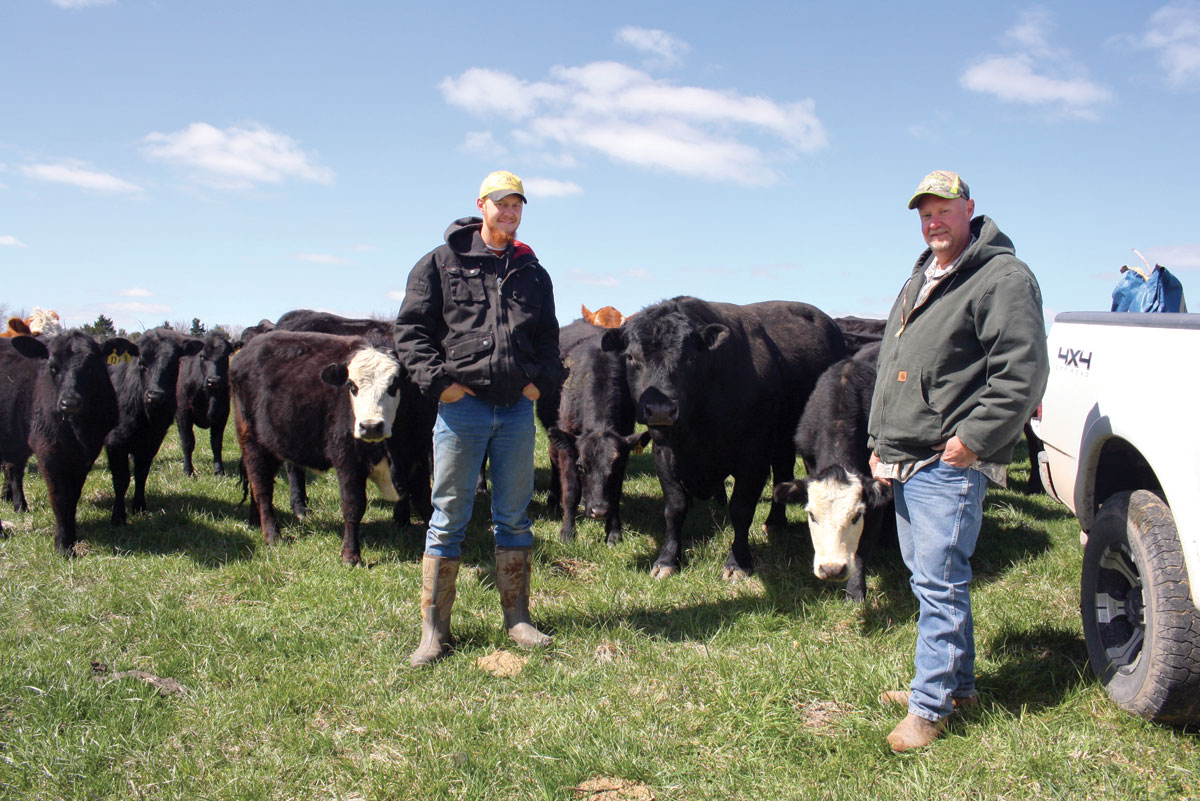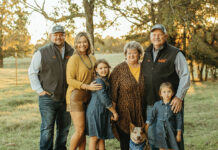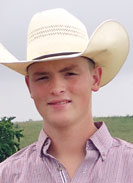
Brad and Dwight Eden are working to build a cow/calf operation on their multi-generation farm
As a young man, Brad Eden didn’t think his future would include his family’s farm, but as the years went by he realized there was no place he would rather be.
Today, Brad and his son, Dwight, are in the process of revitalizing the 169-acre Rippee-Hosiner-Eden Century Farm, which was established in 1849, making them the sixth and seventh generation of their family on the farm.
When Brad’s father Carl became ill, Brad spent more time back on the farm and eventually put a few cows on his parents’ parcel.
“I knew my career was going to come to an end, and I thought I’d take the farm back over and get rich doing it,” Brad said with a laugh, adding that he is glad to have his pension from the Springfield (Mo.) Fire Department.
The farm is owned by his mother Sue and her siblings. Brad and his wife, Angela, became part owners when an aunt offered to sell her portion of the farm to them. Dwight moved to the farm after the purchase.
“That was about the best news I’ve ever gotten,” Dwight said. “This is someplace I’ve always loved and I have always wanted to live here and dreamed of it, but I never thought it was possible. When my aunt wanted to sell, it was like my dreams were coming true. Words can’t describe how awesome it is that I get to be here and it be a piece of my family’s history, and that I have this piece of land that I can farm and be proud of.”
The farm had been rented for several years, so there was a lot of work to be done when Brad and Dwight took over.
“We’ve been rebuilding fence, cutting brush and we’re trying to build the place back up to where it used to be,” Brad said.
In addition to rebuilding the farm’s infrastructure, the Edens are working to establish their cattle herd.
“We started with some ‘mutts’ I bought from a neighbor,” Brad said. “I bought a Hereford bull to run with them. I really liked the black baldies, but as we started to get into it, we took a lot of classes with the (University of Missouri) Extension and they were talking about how the black-hided cattle bring more, thanks to the marketing by the Angus Association. Now we’re phasing out all of the Hereford stock and going black. As things go with EPDs, we still have mutts, but we’re really going to start looking at our genetics because that’s the way the industry is going.”
They are planning to stay with a commercial herd, but those plans may change in the future.
“We want to improve whatever money we have coming in with that black-hided calf standing there that looks just like the other one. With the things we’re learning, we’re just trying to hedge our bets. We like the old-school stuff, which is why we’re fixing this place up, but we want to be competitive,” Brad said.
Last year, the Edens purchased 10 additional commercial heifers to add diversity to their genetics and will likely sell their current bull because they have retained some heifers he sired.
Dwight is a junior animal science major at Missouri State University and hopes to incorporate some registered animals because of the higher-quality genetics and the data available for those animals.
“If we do that, we can have that data and try to work toward that direction,” he said.
They currently have 34 momma cows being serviced by an Angus bull.
“We’d really like to have about 25 really good mommas,” Brad said. “That would give me 25 calves to sell every year, which would cover rent and fertilizer.”
At this time, most of their herd are fall calving, but the Edens are working to have their cows calve a little closer together.
“When I first started, there was 9 acres, so there really wasn’t any separating the bull from the cows, so your cycles get kind of messed up,” Brad said. “I have two or three that will calve in June, and the rest are September, October calvers. Now that we have more room and can separate the bull out, we are going to be able to compact a few things and at least have a fall and spring season. We’re not going to be like these guys who can get everything done in 60 days, but if we have a spring and a fall, I’d be happy.”
The additional pasture space has also allowed the Edens to feed their weaned calves a little heavier before selling them as yearlings.
The Edens produce their own hay from about 90 acres, but that varies from year to year, depending on pasture needs.
Improving pastures is on the radar for the Edens.
“We’re still growing Kentucky 31, but we may look at some warm-season grasses,” Brad said. “I’ve been to grazing school and we need to get Dwight in one, and we have a little of our grazing system started, but we need to work on that more. We’re just getting into our second year of having the whole farm, and all of the aunts and uncles are behind us in doing what we want to do, but because I don’t own the entire spread, I can only get (cost-share funding) for what I own… At a minimum, we want to farm to pay for itself. I want to get this back up to being a good working farm and pass it on to (Dwight). It’s been a labor of love; just taking it a step at a time.”
The men are also trying to restore some of the history of the farm, including a more than 100-year-old barn.
“A lot of time, blood sweat and tears,” Brad said as he and Dwight stood in front of the barn.
While Brad had a career off-the-farm, Dwight would rather say on the farm. However, he knows that might not be possible in the immediate future.
“This is all I’ve ever wanted,” Dwight said. “I’ve always wanted to raise cattle, work in the dirt and be outside. I want to keep building our herd and maybe one day we can have the whole thing in just our name, and maybe buy more land and more cattle. Maybe the part that was sold off years and years ago, maybe we can get it all back like it was when it was first homesteaded.”
Brad said Dwight’s adventures on the farm are just beginning, but many of the hopes and dreams he has for the farm are the same as those seven generations ago. And while the father and son are looking forward to the future, the ties to the past are strong, right down to the 1952 8N Ford tractor that has been on the farm since it rolled off of the dealership lot.






